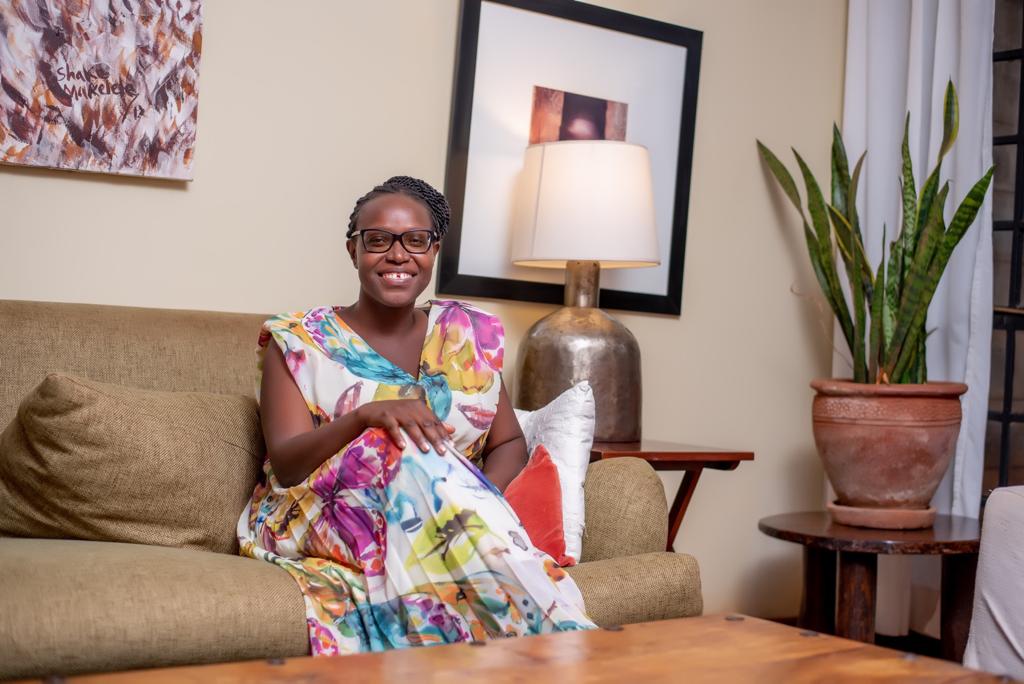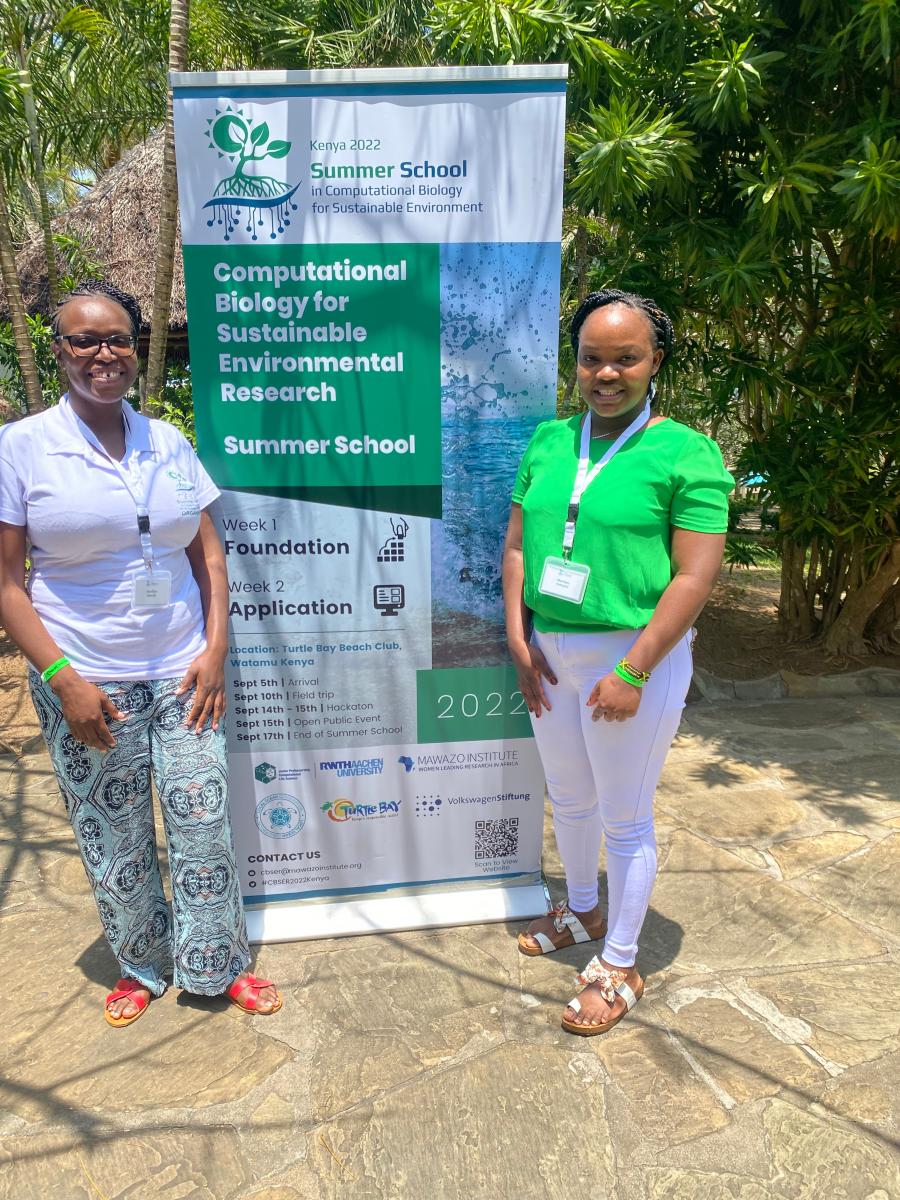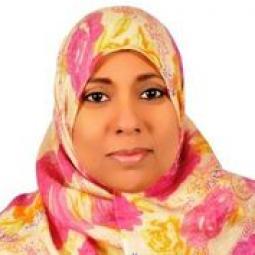
Marilyn Ronoh
Mathematical sciences
A mathematician from Kenya using an AI-powered ChatBot to reduce HIV transmission in Kenyan youth
I found my niche, and I have not looked back.
 Mathematician Marilyn Ronoh saw the high rates of new HIV infection among Kenyan youth and decided a more innovative solution was needed.
Mathematician Marilyn Ronoh saw the high rates of new HIV infection among Kenyan youth and decided a more innovative solution was needed.
As a 2022 OWSD Early Career fellow, she is using computational modelling and an AI-powered ChatBot to enhance HIV testing, status awareness, and status disclosure among young people in Kenya. Youth aged 15-24 account for about 40% of the new HIV infections in Kenya, according to the National AIDS Control Council, with female youth doubly affected compared to their male counterparts. Despite youth-friendly policies and interventions to increase voluntary HIV testing, condom use and antiretroviral therapy, uptake of these control measures is still low. Misinformation abounds, especially when they spread health information by word-of-mouth. Most of the youth, who are technologically adept, also prefer to access health information online than in-person. “They are shy to go to the hospitals,” explains Marilyn. “A lot of them will go with untreated STIs because they are afraid to explain this to a doctor.”
In speaking with a university doctor, Marilyn’s research team learned that many students were writing for medical advice using the WhatsApp messaging platform. Students appeared hesitant to openly discuss matters concerning sexual and reproductive health, prompting university doctors to recognize the necessity for a ChatBot. The volume of messages often overwhelmed the doctor, making it challenging to provide timely responses to each inquiry. As a solution, the implementation of a ChatBot could offer students immediate access to reliable information and support on these sensitive topics. Enter Marilyn’s ChatBot. Marilyn teamed up with experts in artificial intelligence and health informatics to design the HIV ChatBot. Developed with machine learning algorithms using computational modelling results on existing quantitative and qualitative data on HIV, the ChatBot will be accessible through an app accessible on mobile phones. Its nationwide rollout will be supported by the Ministry of Health's National AIDS Control Council, alongside key stakeholders in the HIV sector, the Ministry of Education, health clinics, and various social media platforms. This collaborative effort promises to revolutionize HIV education and support accessibility on a national scale. Top of FormThe ChatBot will be able to respond to most inquiries with accurate health information on matters regarding HIV and sexual and reproductive health. If it is not able to respond to their questions, users will be directed to a health provider for further help. The ChatBot will use accessible language and incorporate Kenyan slang to make users feel more comfortable: “We want them to feel they are in a friendly space.”

Mathematics can be an intimidating subject to many people, but Marilyn never had that fear. This was thanks in large part to her father, by whom she was homeschooled for the first part of kindergarten. “At that age children do addition, subtraction…but my father took it farther.” He taught her to read and had her already practicing multiplication tables. When he took her to enroll in the public kindergarten, the teachers were at a loss for what to do with her. “They said ‘take that child to primary school, there’s nothing we can teach her.’” Marilyn skipped both kindergarten and grade 1, entering grade 2 at 6 years old. Throughout primary and secondary school, she never had a male mathematics teacher. This also contributed to her affinity for the subject: “Those who shaped my perspective were women.”
When she started as an undergraduate at the University of Nairobi, the university was introducing a new programme in biomedical technology, with only a few highly selected students. Marilyn was excited to be one of these elite few – but after her first year of study, she began to worry about the lack of career prospects in Kenya for graduates of the programme, being such a new field. Other students in her courses had connections abroad or a clear idea of what their career trajectory looked like, but Marilyn did not. She started to think about alternatives, and ultimately, “I went back to what I’ve always been passionate about – maths…I started afresh.”
In her fourth year as an undergraduate, she faced another difficult junction, having to choose whether to put her knowledge to use in the financial sector or to continue on in academia. It was a professor of mathematical modelling, Prof. Wandera Ogana who tilted the scale in favor of research. “His course spoke to me in a very different way. That was how I was able to focus on the current research I am doing.”
Finding an application for her knowledge that related to health was also important to Marilyn, who had once dreamed of becoming a doctor. “I found a space where I could now use my math skills on diseases and find computational solutions…I found my niche, and I have not looked back.”
Marilyn continued on at the University of Nairobi to do a Master’s in mathematics, during which she had her first child. She felt ready to settle and look for a job. “I was tired, going through this Master’s, mothering.” But another professor, Dr. Josephine Wairimu had other ideas in mind for Marilyn. Immediately after graduation, “she took hold of me and told me, ‘I need your PhD proposal in one month’s time.’” At the time, “I thought she was being unfair,” says Marilyn, “but I’m grateful today that she allowed me to focus.”
Marilyn did submit her PhD proposal – and also submitted an application to the OWSD PhD fellowship. Having carried out all her academic career at the University of Nairobi, she was eager to experience different perspectives within her field. Through workshops she had attended South Africa, Italy, Botswana, she had been exposed to new methodologies and ideas beyond those taught to her by her advisors, which intrigued her when thinking about the subject of her PhD. The OWSD PhD sandwich fellowship, which she was awarded in 2016, supported her to make research visits to the University of KwaZulu-Natal in South Africa, where was surrounded by professors and other students using the same techniques. “I was able to familiarize myself with the current methods in my area quite fast because of the different space I was in.” She credits her host supervisor, Professor Faraimunashe Chirove, with imparting important wisdom about academic writing and publishing as well. When one of her first rejections came from a top journal in her field, “He was like, ‘but this is a very good rejection…look at all those comments that have come with it. Use those comments, to improve the quality of your work.’”
Now a lecturer in the Department of Mathematics and Statistics at the University of Embu in Kenya, Marilyn tries to share that outlook with her own students. “I have been able to bring that kind of thinking, trying to help my students appreciate how to do quality work.” As an OWSD Early Career fellow, she is now an inspiration to younger women in mathematics, just as she had so many powerful sources of encouragement herself.










































